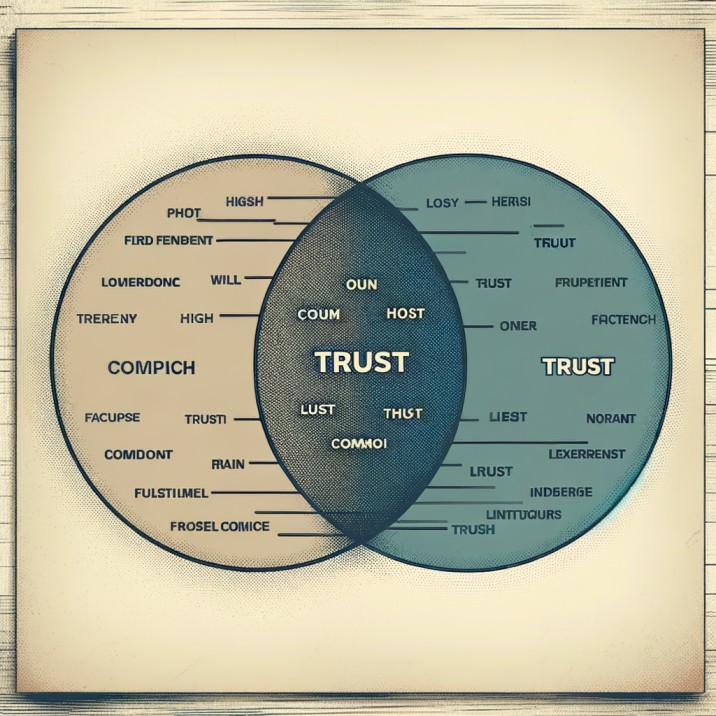In this article we have explained Difference between Will and Trust. Estate planning is a critical component of financial planning, ensuring your assets are distributed according to your wishes after your passing. Two primary instruments in estate planning are wills and trusts. While they both serve the purpose of asset distribution, they differ significantly in terms of operation, privacy, and control. This article delves into these differences to help you make informed decisions about your estate planning.
What is a Will?

Definition and Basic Function
A will, or testament, is a legal document expressing an individual’s wishes regarding the distribution of their assets after death. It is straightforward in its purpose: to outline who inherits what. Wills become effective only after the individual’s death and must undergo a legal process known as probate.
Probate and Public Record
The probate process validates the will and oversees the distribution of assets. This process is public, meaning the contents of the will become a matter of public record. This can sometimes lead to a lengthy and expensive process, depending on the complexity of the estate.
What is a Trust?

Definition and Versatility
A trust is a fiduciary arrangement where one party, known as the trustee, holds the right to manage assets for the benefit of another party, the beneficiary. Trusts can be used for various purposes, including estate planning, tax planning, and asset protection.
Types of Trusts
Trusts are broadly categorized into two types: living trusts and testamentary trusts. Living trusts are created during the individual’s lifetime, while testamentary trusts are established upon death through a will.
Key Differences Between Will and Trust

When They Take Effect
Will: Effective only after death.
Trust: Can be effective during the individual’s lifetime (living trust) or after death (testamentary trust).
Probate and Privacy
Will: Requires probate, a public process.
Trust: Typically bypasses probate, offering more privacy.
Control and Flexibility
Will: Offers less control over how assets are distributed.
Trust: Provides more control and can set specific terms for asset distribution.
Cost and Complexity
Will: Generally simpler and less expensive to set up.
Trust: More complex and costly to establish, but can offer savings in the long run.
Conclusion: Making the Right Choice for Your Estate
When deciding between a will and a trust, consider factors like the size of your estate, the need for privacy, and your specific wishes for asset distribution. While a will is simpler and more straightforward, a trust offers greater control and privacy but at a higher initial cost and complexity. Consulting with a legal professional specializing in estate planning is advisable to determine the best course of action for your individual circumstances.
Final Thoughts
In summary, while both wills and trusts are essential tools for estate planning, they serve different needs and preferences. Understanding their differences is key to making an informed decision that aligns with your estate planning objectives.
FAQ on the Difference Between Will and Trust
- What is a will?
A will is a legal document that specifies how your assets should be distributed after your death. - What is a trust?
A trust is a legal arrangement where a trustee holds and manages assets for the benefit of named beneficiaries. - How does a will differ from a trust?
A will becomes effective after death and goes through probate, while a trust can take effect during your lifetime and often bypasses probate. - What is probate?
Probate is a legal process where a will is reviewed to determine whether it is valid and authentic. - Is a trust public like a will?
No, trusts are generally private, whereas wills become public record during the probate process. - Can a trust help in tax planning?
Yes, certain types of trusts can provide tax benefits. - Do I need a lawyer to create a will or trust?
It’s highly recommended to consult a lawyer for creating either, to ensure all legal requirements are met. - Can a will be contested?
Yes, wills can be contested during probate, but trusts are less susceptible to legal challenges. - What is a testamentary trust?
It’s a trust created as per the directives in a will and becomes effective after death. - What are living trusts?
These are trusts established during an individual’s lifetime. - Can a will distribute all types of assets?
Mostly yes, but certain assets like life insurance proceeds may bypass the will. - Who can serve as a trustee in a trust?
An individual, a group of individuals, or a professional trust company can serve as trustees. - Is it expensive to set up a trust?
Generally, trusts are more expensive to set up than wills due to their complexity. - Can I change my will or trust?
Yes, wills and revocable trusts can be amended or revoked, but irrevocable trusts cannot. - Are wills and trusts only for the wealthy?
No, they can be beneficial for individuals with various levels of assets. - What happens if I die without a will or trust?
Your assets will be distributed according to state intestacy laws, which may not align with your wishes. - Can I have both a will and a trust?
Yes, they can complement each other in an estate plan. - How does a trust protect privacy?
Since it doesn’t go through probate, the details of a trust remain private. - What assets should I put in a trust?
This depends on individual circumstances, but commonly includes real estate, investments, and business interests. - Can trusts provide for minor children?
Yes, trusts can manage assets and provide for minors until they reach adulthood. - Is a will or trust better for avoiding estate taxes?
Trusts, especially irrevocable ones, can be more effective in reducing estate taxes. - What is the role of a trustee?
A trustee manages the trust’s assets for the benefit of the beneficiaries. - Can a will appoint guardians for my children?
Yes, wills can be used to appoint guardians for minor children. - What happens to a trust after death?
The trust continues to operate according to its terms, distributing assets to beneficiaries or holding them in trust. - Do I need a trust if I have a small estate?
It depends on your specific goals and circumstances; even small estates can benefit from a trust. - What is an irrevocable trust?
It’s a type of trust that, once established, cannot be altered or revoked. - Can trusts avoid creditor claims?
Certain types of trusts can offer protection against creditors. - Is it harder to contest a trust than a will?
Generally, yes, trusts are less prone to legal challenges than wills. - How long does probate take for a will?
This varies widely but can take anywhere from a few months to several years. - Can a trust manage my assets if I become incapacitated?
Yes, a properly structured trust can manage your assets if you’re unable to do so.
Sources:-
















